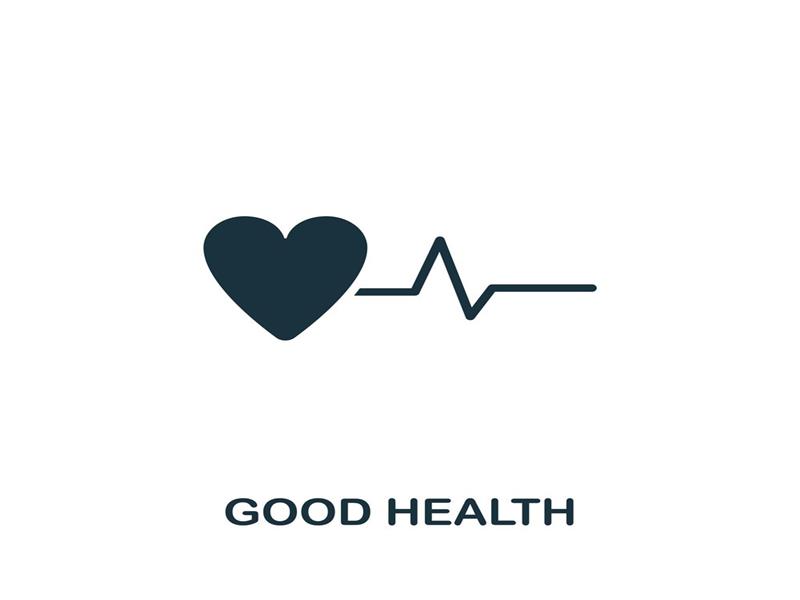
10-Apr-2023
10 tips to stay healthy and get the best out of it
Prioritizing our health can be hard in today's fast-paced world. Between work, family, and other responsibilities, it's easy to neglect our physical and mental well-being. However, making small changes to our daily routine can have a significant impact on our health over time. In this view, we'll discuss 10 easy steps to get healthier.
1. Get Enough Sleep:
Getting enough sleep is essential for
good health. Sleep helps the body recover from the stresses of the day and improves mental clarity. Adults ought to attempt sleep to get somewhere in the range of 7 and 9 hours of rest every evening, as per the Public Rest Establishment. To improve your quality of sleep, you should establish a regular bedtime routine, avoid caffeine and electronic devices before bed, and make sure your sleeping environment is comfortable and dark.
2. Stay Hydrated:
Staying hydrated is critical for maintaining good health. Water helps to flush toxins from the body, regulates body temperature, and keeps joints lubricated. Men should aim for 3.7 liters of water per day, while women should aim for 2.7 liters, according to the Institute of Medicine. Carry a water bottle with you throughout the day to increase your water intake, and flavor your water with fruits or herbs for variety.
3. Eat a Balanced Diet:
Eating a decent eating regimen is fundamental for good well-being. A well-balanced diet should include whole grains, lean protein, a variety of fruits and vegetables, and healthy fats. Try to eat a colorful plate with a variety of foods at every meal to ensure that you get all the nutrients your body needs. Avoid beverages high in sugar, processed foods, and foods high in saturated and trans fats.
A decent eating routine supplies the supplements your body needs to successfully work. Your body is more prone to illness, infection, fatigue, and low performance if you don't eat well.
Youngsters who don't get an adequate number of quality food sources might confront development and formative issues, unfortunate scholarly execution, and regular contaminations.
Additionally, they may develop bad eating habits that may last into adulthood.
They will also be more likely to develop obesity and a number of metabolic syndrome diseases, such as type 2 diabetes and high blood pressure if they don't exercise.
The Center for Science in the Public Interest claims that diet is directly connected to four of the top ten leading causes of death in the United States.
4. Exercise Regularly:
It is essential to exercise on a regular basis to maintain good health. The development of muscle, mental well-being, and cardiovascular health all benefit from regular exercise. Adults should aim for 150 minutes of moderate-intensity aerobic exercise per week, such as brisk walking or cycling, according to the Centers for Disease Control and Prevention. Include exercise into your daily routine, such as taking the stairs instead of the elevator or going for a walk after dinner, to increase your physical activity.
5. Reduce Stress:
Our mental and physical health can be affected negatively by stress. Stress can be reduced through self-care practices like yoga, meditation, or a relaxing bath. It's additionally vital to define limits and work on expressing no to try not to take on something over the top.
Aerobic exercise two days per week significantly reduced perceived stress overall and uncertainty-related stress in a six-week study of 185 university students.
Additionally, the exercise program primarily focused on self-detailed gloom focuses on the fact that people who eat a diet high in processed foods and added sugar are more likely to experience anxiety symptoms.
Being constantly anxious may lead you to indulge and go after exceptionally acceptable food varieties, which might hurt your general wellbeing and mind-set.
6. Practice Good Hygiene:
It is essential to practice
good hygiene in order to stop the spread of diseases and germs. Always wash your hands after using the restroom and before eating. When you are coughing or sneezing, cover your mouth and nose and try to avoid touching your face as much as possible.
7. Get Regular Check-Ups:
Keeping your health in good shape requires regular visits to your doctor. Schedule regular appointments for preventive care, such as vaccinations, blood pressure checks, and cancer screenings. If you have a chronic health condition, such as diabetes or high blood pressure, work with your healthcare provider to manage your condition effectively.
8. Avoid Smoking:
All over the planet, smoking is the super preventable justification behind death. One of the best things you can do for your health is to stop smoking if you smoke. On the off chance that you're attempting to stop, converse with your medical services supplier for assets and backing.
9. Limit Alcohol:
Excessive alcohol consumption can have a negative impact on our health, including increased risk for liver disease, cancer, and other health conditions. To maintain good health, limit your alcohol consumption to no more than one drink per day for women and two drinks per day for men.
10. Practice Gratitude:
Practicing gratitude is an essential part of maintaining good mental health. Take time each day to reflect on the things you're grateful for, and express gratitude to others

SEO and Content Writer
I am Drishan vig. I used to write blogs, articles, and stories in a way that entices the audience. I assure you that consistency, style, and tone must be met while writing the content. Working with the clients like bfc, varthana, ITC hotels, indusind, mumpa, mollydolly etc. has made me realized that writing content is not enough but doing seo is the first thing for it.
Join Our Newsletter
Subscribe to our newsletter to receive emails about new views posts, releases and updates.
Copyright 2010 - 2026 MindStick Software Pvt. Ltd. All Rights Reserved Privacy Policy | Terms & Conditions | Cookie Policy